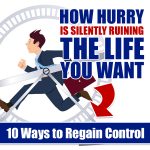“I didn’t have to choose the way I did. I just couldn’t help myself.”
Something strange and irrational often goes on in the human heart. See if this rings a bell for you.
At certain times you seem to have freedom to make choices that you are proud of—

- I am going to stick to my diet this time (I have a very strong desire to do this).
- I will pay down my debt and/or save money (I am committed and motivated to do this).
- I’m done with pornography (the thought of going down that path again disgusts me).
- I am going to work on and finish this project (this is something I really want to complete)
But at other times it seems like you are being pulled, almost compelled to choose a lesser option. A feeling comes over you: I really WANT TO do this other option right now (even when it undermines the better option you say you want).
Sadly, it’s not the one you really want (when you are thinking straight).
“I didn’t have to choose it. I just couldn’t help myself.”
Sounds familiar?
How can you have MORE freedom to choose the wisest, best options… at those times when it feels like you are being compelled to choose the lesser option?
Why You’re Being Pulled This Way and That
If you have grown up in a western, individualistic society, you are taught to believe that you are free to choose.
Well, yes and no. On one level you may have freedom from external forces that limit your choices. But, you are not as free to choose as you think you are.
There are many unseen forces that pull you left/right and limit your ability to choose wisely.
- Basic bodily influences. When you are in certain states (fatigue, hunger, lack of sleep, intoxicated), your perceptions and desires change dramatically. These limit your “freedom” to choose well. Often, when influenced by these forces, you think, say, and do very stupid things you later regret.
- Your family of origin. How you are raised, and by whom, molds and shapes you in ways you can’t fully see, but undeniably impacts how and what you choose.
For example, if you experience abandonment, rejection, or are repeatedly overlooked or dismissed by your parents, you will experience a compulsion to be accepted that will distort future relationships and choices you make.
- Mental distortions. Every human is impacted by cognitive biases that distort your perceptions of reality.
For example, the framing effect changes the way you perceive a situation. Research shows that when a situation was presented in a positive frame to a group of people, they tended to avoid the riskier options. When presented in a negative light, they tended to seek after the riskier options. Same situation – framed differently – led to totally opposite choices. Learn more about the framing effect and other mental distortions here.
You and I are not always free to choose between options, but are often influenced by these mental distortions.
- Easy (fun) vs. hard (practical). All things being equal, you and I have a tendency to choose easy or fun things over hard or less interesting things.
For example, research has shown that people who shop online using a touch screen device (vs. a desktop computer) impulsively spend more money on frivolous or novel items, rather than practical or needed items. Why? It is believed that the fun touch environment influences people toward wants and indulgence rather than needs and practicality. You may think you are free to choose but in this case your device type is influencing you in one direction.
- Habits.Your good and bad habits (and their associated triggers), can pull you in a direction so you are not fully free to choose.
For example, I am not in the habit of eating dessert while a friend may be in the habit. When our meal is over, we each have a bent in a different direction when it comes to ordering dessert… unless we consciously override it.
- Spiritual forces. There are unseen spiritual forces that pull you this way or that. Just because you cannot see these influencing forces doesn’t make their effects any less real.
For example, the Apostle Paul laments in the book of Romans, chapter 7 – “I want to do what is right, but I don’t do it. Instead, I do what I hate.”
Bottom line: You and I may think we are “free to choose” the best option at any given moment, but often we are like the cork floating in the sea, highly susceptible to the unseen currents.
How can you increase your freedom to choose the best option you are later proud of?
How to Battle Unseen Forces and Increase Your Freedom to Choose
Here are 4 key steps you must take to mitigate against the hidden influences and regain your freedom to choose wisely.
- Be aware of the hidden forces influencing you. This is the first step in making progress toward a freer life.
For example, if you are roller skating and you are not aware of an imperceptible tilt to the ground beneath you, you will ALWAYS roll in the same direction even as you insist you are going in a straight line.
If, however, you know about this tilt AND you desire to counteract it, then and only then can you can develop strategies to compensate for and overcome it.
This article is intended to make you aware of these hidden factors AND provide some strategies for overcoming them.
- Be intentional ahead of time – If there are “inferior” or less preferred options that at times demonstrate unusually strong persuasion, you must find a way ahead of time to reduce their power (or strengthen the better option).
- [Ahead of time] Make the desired (but seemingly harder) option easier. Let’s say you really want to get back into shape and therefore you make the decision to start going to the gym before work. For the first week or two everything is on track. But, then one morning you find yourself in your warm bed and you “decide” to blow it off that day because it is such a hassle to get up, get dressed and get ready. You tell yourself the best decision is to use the extra time to get enough rest. Easy always wins over hard.
To remove the convenient excuse of the “hassle” of getting ready, you can put your workout clothes next to the bed (or wear them the night before) to reduce the “friction” that gives power to the excuse. To reduce the power of the excuse that you didn’t get enough sleep, make the choice ahead of time to go to bed earlier.
In other words, ahead of time (when you really do want to go to the gym), you design things so doing the best option is easier. You are paving the way for the better choice so you will truly be free to make it when the time comes.
Here is a good article about how to design your world so that the better options have greater power in your moment of weakness.
- [Ahead of time] Make the undesirable (but easier/default) options harder to do. For example, do you find it difficult to resist a good sale, leading to spending money you really don’t have? It is soooo easy to whip out the credit card and promise yourself you will pay it back. But, over time you find yourself under the burden of debt.
Instead, ahead of time you can freeze your credit cards in a block of ice in your freezer. I know, it sounds crazy, but some people swear by this strategy. Since it will take 3 hours to thaw it out to use, you make it harder to impulsively use. Plus, you buy yourself time until the urge passes so you can think straight again.
- [Ahead of time] Make the desired (but seemingly harder) option easier. Let’s say you really want to get back into shape and therefore you make the decision to start going to the gym before work. For the first week or two everything is on track. But, then one morning you find yourself in your warm bed and you “decide” to blow it off that day because it is such a hassle to get up, get dressed and get ready. You tell yourself the best decision is to use the extra time to get enough rest. Easy always wins over hard.
- Be values driven, not driven by the feelings of the moment. I think this quote is incredibly insightful on why some people succeed, and others don’t:
“Unsuccessful people make decisions based on their current situation [and the feelings in that moment]. Successful people make decisions based on where they want to be [in the future].”
Another way to say it might be–
“Successful people are able to exercise the discipline needed to choose what they really want most from what they want now.”
If you make decisions based on what you value in the future, what is truly important to you, then in the light of that preferred future, the immediate (easier) options look inferior.
But, if you consistently choose options based on the feelings of the moment, you will be the cork floating in the ocean. You will have lots of regrets.
For example, in the famous marshmallow experiment, a large group of children were offered one marshmallow if they wanted to eat it immediately, or two if they were willing to wait 15 minutes. Those children who chose based on the desires of that immediate moment (I want it NOW! Who cares about the future) tended to do worse in school and career as they grew older. Their default choice was NOT to delay gratification for a “bigger, better” payoff in the future.
You are only fully free to choose the best options and make the best decisions IF you are able, even compelled by what you truly value.
- Utilize the perspective and accountability of others. You know how it is easier to be rational when it comes to options and choices others face? (For example, you say, “you need to break it off with that jerk” but they are being pulled by unseen desires).
Why not enlist others to help you make those choices that your better self wants to make?
For example, when you say you want to get into shape, others will more quickly see through your rationalizations and excuses (“it’s better to get my rest than to go to the gym”)… and remind you of what you really want and what the future will look like if you choose the better way.
Plus, they can help you with ideas on reducing the power of those easy, short term decisions as well as strengthening your resolve to choose the better options.
None of us is as strong as all of us.
Are you interested in being in a group that works together to help each other stay on track toward their “better” goals? Just drop us a note here and indicate you are interested in being in a group.
We all need to grow in our ability and freedom to consistently choose the better, wiser options. Utilizing the above strategies can go a long way to helping you make better decisions.
Better Decisions = Better Life
Your Turn!
What are some ways you have found helpful to resist the pull of unwise options?









Please note: I reserve the right to delete comments that are offensive or off-topic.